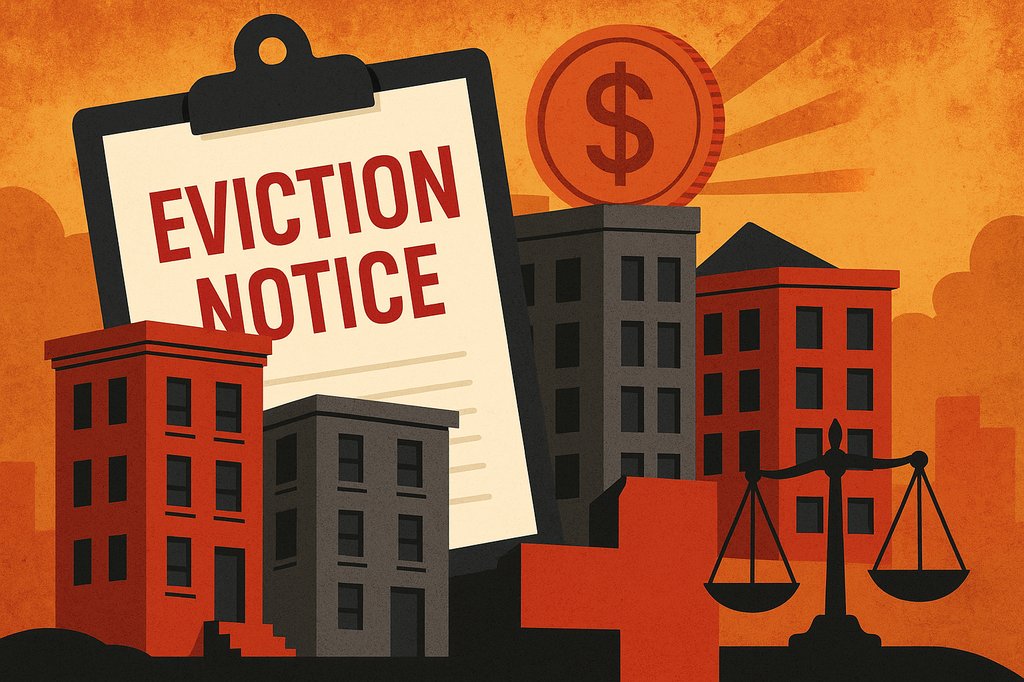5 Reasons to Fire Your Property Manager

I’ve found over the years that if I’m micro-managing someone then I have the wrong person. Micro-managing means you’re telling someone exactly how you want something done rather than just agreeing on the outcome. You’re repeating yourself and constantly following up. In other words, you’re spending way too much time with someone to get stuff done.
Micro-managing turns you from a passive-income investor into a hands-on investors, and it’s not good for you or for your property.
You and your property manager should agree about the feasibility of your business plan (whatever it is) and your property manager should be able to execute that plan without you telling him exactly how to do it. You should be able to review the key metrics and together adjust your strategy as things change.
However, if your property manager is consistently falling short of your agreed-upon goals, you find yourself micro-managing the manager, or asking for the same thing more than once, it may be time to consider a change.
Here are 5 tell-tale signs that it might be time to fire your property manager:
Sign # 1. Not meeting target goals such as occupancy, collections, and cost control
If you and your manager agree that your vacancy should not exceed 5% per year and you shouldn’t have more than 2% in uncollected rents and the manager’s performance falls short, then may be time for a conversation, unless there are other factors in play that are outside the manager’s control.
Sign # 2: Lack of or Incomplete Reporting
I had a property manager once who gave me owner reports that looked pretty good at the outset, and in truth, I didn’t study them hard enough to make sure they actually did what I wanted them to.
Once we got started, I found myself asking the manager for things like outstanding rent balances by unit or for more explanation of expenses. Because his reporting was not adequate to answer my (what I thought were routine) questions, he had to research these questions and it frustrated him as well as me.
Because this manager was managing primarily smaller buildings, my sense was that his other clients were not as demanding as I was, and that incompatibility became more and more stressful.
Make really sure that the property manager is putting out reports that give you the answers you need without a whole lot of follow-up. If you’re constantly asking for more information because of incomplete or missing reporting, then this is a sign that the relationship could be short-lived.
Sign # 3: Ignorance, Inexperience or Incompetence
This sounds obvious, but many times you can’t tell that your property is ignorant or incompetent until you’re into the relationship for a while.
In the case of my 12-unit, I was dealing with a difficult situation that involved landlord-tenant issues as well as housing code compliance issues. While my property manager appeared to be knowledgeable at the time (at least compared to me), it eventually became obvious that the manager’s inexperience cost me thousands of dollars.
In addition, I listened to bad advice with regards to renting to Section 8 subsidized housing tenants. The property manager was opposed to the idea. I now understand this was because he was inexperienced dealing with section 8 tenants. On the other hand, my new property management company specialized in section 8 tenants, and subsidized housing is the strategy for the part of the city the building is in. It as a major mistake not to rent to section 8 tenants right from the start, a mistake which also cost me thousands of dollars.
Sign # 4: They don’t do what they say they’re going to do
I expect people to do what they say they’re going to do or communicate otherwise. That’s it. No more, no less.
I can’t stand it when someone tells me “I’ll email this or that to you by the end of the day”, and the end of the day comes and goes and I get no other communication. The more this goes on, the more aggravated I get, and the more of a red flag it becomes.
Sign # 5: Lack of Owner Mindset
If you boil down Reasons # 1 through # 4 I could generalize that it’s time to fire your property manager when they don’t display an owner’s mindset. While no one is going to care as much about your asset as you, you want your manager to care about it almost as much. You want that manager to behave as if it’s their own building.
While on the one hand I don’t like my property manager to also own their own apartment buildings (because they’re likely going to compete with you to acquire additional buildings, and that makes it more difficult to involve them upfront as you evaluate opportunities), I do prefer that my property manager also owns their own multi-family buildings. They generally use the same people and systems for your buildings as their own.
I don’t want my property manager just to meet expectations, I want them to continually push the envelope with the property, and with me. I want them out there coming up with new ideas of how to increase income and reduce expenses. I want them to continually improve their own systems and how they do things.
If I don’t see my property manager aggressively and proactively managing the property it raises a red flag for me.
Conclusion
I think it’s short-sighted to fire your property manager for just one of these infractions (though you certainly could). But the more of these signs you see the more likely it may be time for you to re-evaluate your relationship with them.
I can tell you that if you’re frustrated with dealing with your manager, you’re not achieving your business plan, and you’re spending way too much time “managing” the building, it may be time to pull the plug.
And if you do, and you experience a property management company who performs at the highest level, your life will be like night and day. You’ll have more time to enjoy life and possibly look for more units rather than worrying about the ones you already have.
 |
Michael Blank | Company Website | LinkedIn Connect |
Michael Blank’s passion is being an entrepreneur and helping others become (better) entrepreneurs. His focus in real estate investing is buying apartment buildings by raising money from private individuals. Michael has been investing in residential and multifamily real estate since 2005 and began syndicating deals in 2010. He is the author of the Syndicated Deal Analyzer and the free eBook “The Secret to Raising Money to Buy Your First Apartment Building”. |








